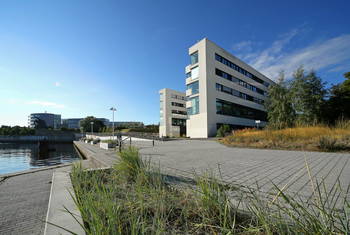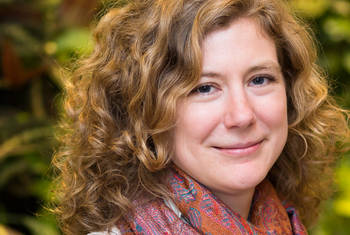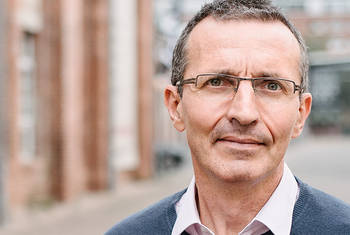Diego Alburez-Gutierrez How Can We Quantify the Immediate and Lingering Impact of Genocide on Local Populations?
Diego Alburez-Gutierrez is a research scientist at the Max Planck Institute for Demographic Research. He has previously worked at the London School of Economics and Political Science and with the United Nations High Commissioner for Refugees (UNHCR). His main research interests include population dynamics, inter-generational processes and the experience of death and violence. An expert witness for US asylum cases at the Center for Gender and Refugee Studies, along with English, German and Spanish, Alburez-Gutierrez is fluent in the Mayan languages Achi, K’iche’ and Kaqchikel.
Area of Research
Social Demography
2018-2018
Statistics Team Intern
United Nations High Commissioner for Refugees (UNHCR)
since 2018
Research Scientist (postdoc)
Max Planck Society
Max Planck Institute for Demographic Research (MPIDR)
2016-2017
Class Teacher
London School of Economics and Political Science
Social Policy Department
2013
Data Journalist
Plaza Publica Newspaper, Universidad Rafael Landivar, Guatemala
2014-2018
Ph.D.
London School of Economics and Political Science
Demography and Population Studies
2013-2014
MSc
London School of Economics and Political Science
Social Research Methods
2008-2012
Bachelor
Universidad del Valle de Guatemala
Anthropology
- Econometrica
- Demography
- Demographic Research
- Journal of Marriage and Family
- Revue Quetelet/ Quetelet Journal
Prizes
- LSE PhD Academy Prize (2018)
- Otto Hahn Medal for Outstanding Scientific Achievement by Junior Scientists awarded by the Max Planck Society (2019)
Fellowships
- LSE PhD Studentship (2014-2018)
Institute
Max Planck Institute for Demographic Research
The Max Planck Institute for Demographic Research (MPIDR) in Rostock investigates the structure and dynamics of populations. The Institute’s researchers explore issues of political relevance, such as demographic change, aging, fertility, and the redistribution of work over the life course, as well as digitization and the use of new data sources for the estimation of migration flows. The MPIDR is one of the largest demographic research bodies in Europe and is a worldwide leader in the study of populations. The Institute is part of the Max Planck Society, the internationally renowned German research organization.
Map
Mass killings generally occur in settings of armed conflict where it is very difficult or impossible to collect official data on births, deaths and marriages. In this video, DIEGO ALBUREZ-GUTIERREZ confronts this challenge by focusing on the mass killings of the Maya Achi people which took place during the Guatemalan Civil War in the 1980s. Using a novel approach, the “Extended Genealogy Method”, Alburez-Gutierrez reconstructed the demographic history of the affected population over the last 60 years from interviews with relatives of the victims. This project, the first in-depth quantitative study of the genocide in Guatemala, has evident historical significance. It also provides empirical insights into the effects of mortality shocks on population dynamics and introduces a scalable data collection tool.
LT Video Publication DOI: https://doi.org/10.21036/LTPUB10807
Blood is Thicker than Bloodshed: A Genealogical Approach to Reconstruct Populations After Armed Conflicts
- Diego Alburez-Gutierrez
- Demographic Research
- Published in 2019










